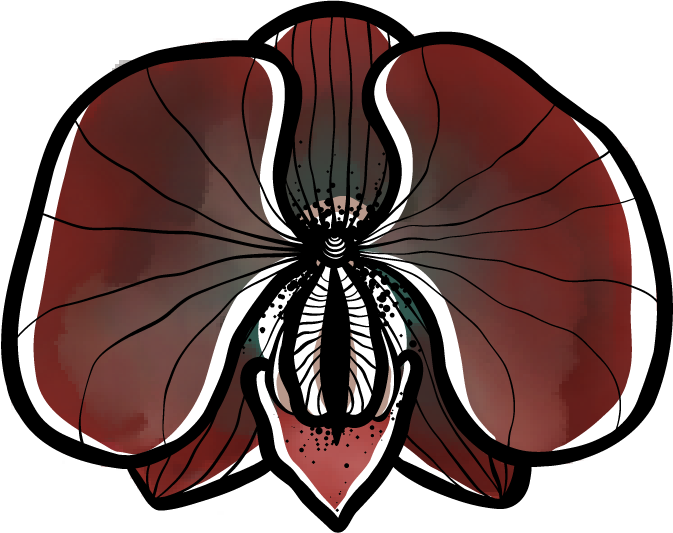(audio version below)
The first time you scoop a date out of a jar of ghee in which it has been resting, you will feel like a sinner.
But go ahead — pop it into your mouth. Enjoy it with all the bliss that is rightfully yours and claim your place at the table of pure, divine nourishment called Ayurveda.
Here, rice pudding (kheer) is prescribed for those who might typically substitute a salad for french fries, a daily glass of coconut water is an elixir when one’s temper is burning down the house, and a good night’s sleep is the remedy for the overwhelm that has become a national pastime.
No More Mr. Tough Guy
I sit at this table with the satisfaction of one who has dined very well. Like many of you, I came to Ayurveda from the modern healthy diet. The latter’s distaste for carbs and love of the “tough guy” approach to eating your greens was sucking all the joy out of food.
When I first came upon Ayurveda, its call for nourishment through foods that naturally taste good was so different from all I’d learned that I could not believe its teachings. As I got deeper into what Ayurveda actually was, I became more and more honest about my desire to eat a diet scented by cumin and cardamom.
Mama Annapurna
The best way to know Ayurveda is to meet Annapurna. She is Ayurveda’s goddess of nourishment, and is in charge of all things scented by cumin and cardamom.
Her origin story is worth learning, but if you’re short on time, know that Annapurna was born from an argument between divine lovers about who was making dinner. Parvati (the divine feminine) became angry at Siva’s (the divine masculine) ridiculous assertions that what She governs (all that is seeable and touchable) is an illusion. Parvati promptly made Herself disappear and so did food and water. Eventually She was moved by her compassion for the starving people and reappeared as Annapurna to feed the masses. Siva came to Her begging for nourishment and forgiveness.
More than Meets the Eye
Nourishment cannot be just an illusion when it does so much for the spirit. Nourishment is a breast offered willingly to a newborn. Nourishment is a bowl of steaming lentils. Nourishment is a friend’s laugh that is so strong you can feel the vibration through the phone. Nourishment is life at the same time as it is all that sustains life.
And then there is the illusion of the wellness industry. This is the faceless mouth that presents a whiplash of new rules about food that contradict each other every six years. The wellness industry yells at us and tells us we are inherently fat and full of toxins. It forces us to eliminate all that we enjoy in exchange for a plate full of crunchy, dry, and bitter things. You are what you eat, which is why so many feel crunchy, dry, and bitter.
A Nourishing Diet
Because I value wisdom traditions, I want nothing of a diet that is devoid of the softness of whole wheat, the pureness of white basmati rice. I want nothing of a diet that tells me that the jar of dates soaked in ghee in my cupboard is shameful. I want nothing of a meal that replaces all sorts of holy foods with a goo of xanthan gum, ground up almonds, and grated cauliflower while telling me I should feel #blessed.
Imagine this:
If we stocked our pantries with nourishment, the madness of the diet industry would cease to exist.
If we filled our refrigerators with nourishment, we would find other things to do with our elders than help them refill their prescriptions.
If we served ourselves bowls of nourishment, we would be able to taste what it is that we actually want out of life.
Sacred Tastes
The issue is not our desire for nourishment, but our denial of the desire. Pushing down that sacred request will send it underground, where it will reappear in warped and twisted ways, giving us a bag of sad potato chips when what we actually want is to coat some locally grown potatoes in the right balance of salt, olive oil, and little green flecks of rosemary, and roast them until they are golden.
In our desire for nourishment we strike gold. But if we lack the language to voice our desires, we suffer. So we must learn our native tongue.
Becoming fluent in nourishment means we replace feeling bad about things that taste good and instead identify the simplest levels of what we enjoy about that taste. Here we find the six tastes, as defined by Ayurveda: bitter, salty, astringent, sweet, sour, and pungent. Each of these contains its own kind of magic that deserves attention from your palate. Take away any one from a meal and you leave unsatisfied. Serve something that combines all in an elegant sextet and you will feel like a newborn sleeping at her mother’s breast.
There’s No Such Thing as Bad Food
In order to accept nourishment you must move beyond the idea that you deserve to be treated like a criminal around food, the idea that you are either getting away with something or being “bad.”
To further remove your ball and chain I encourage you to dine extravagantly every so often. Eat at the best restaurant in town and be fed like Cleopatra. But then go home, make your next meal a simple soup and feel just as pleased by peasant food. A life that is 90% wholesome leaves just enough room to take deliciously naughty bites.
On behalf of the Great Mama, I request this: Feed yourself well. Use your fingers to rip apart chapati and sop them into your bowl. Chew your food until every bit of taste has merged onto your tongue. Then, sit for a time after you have finished eating and relish at how well you have been served in this life.
I promise you this: This act of nourishment will become so big that it will spill over onto other parts of your life. It will give you license to do such wild things as going to sleep at a reasonable hour, taking a morning walk, or declining an invitation to a party in favor of a weekend at home in your slippers.
Join me in exploring this side of wellness — the side that loves the feeling of a tongue swirling around the convex of a slippery ghee-soaked date — and you will be fed from the inside out.
Journal Prompts
- What kinds of diets have you gone on in your life? What have you learned about your body’s needs as a result?
- What kinds of foods do you crave? Where do they fall in Ayurveda’s six tastes (sweet, salty, sour, pungent, astringent, bitter)? Keep in mind that most foods have more than one taste.
- Write about the parts of your life in which you nourish yourself the most. Why do you give yourself that permission? What has been the result?





